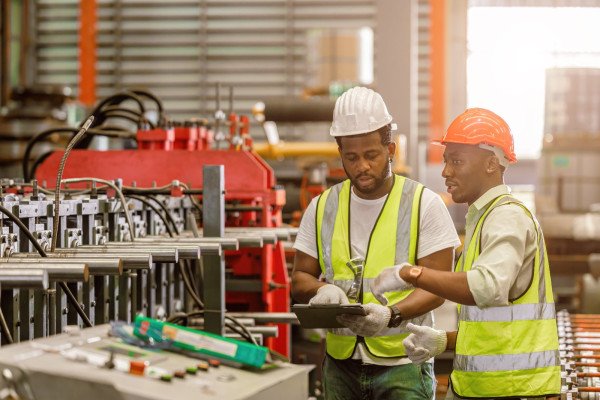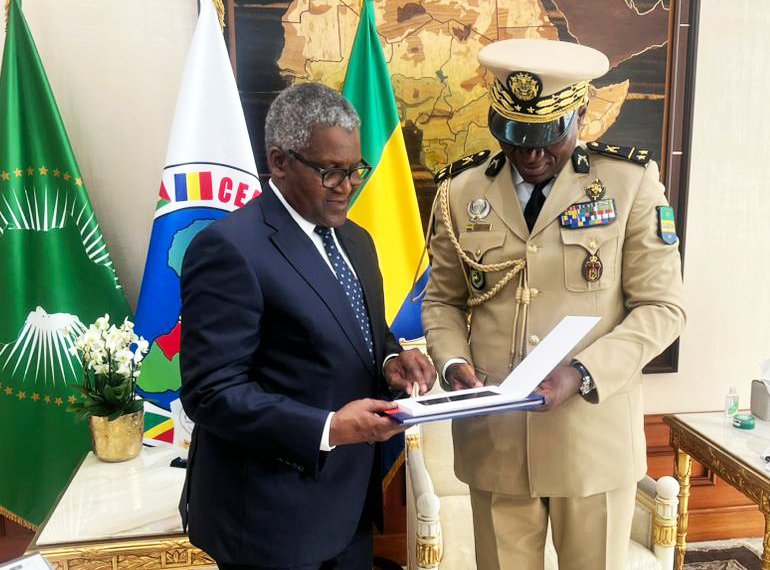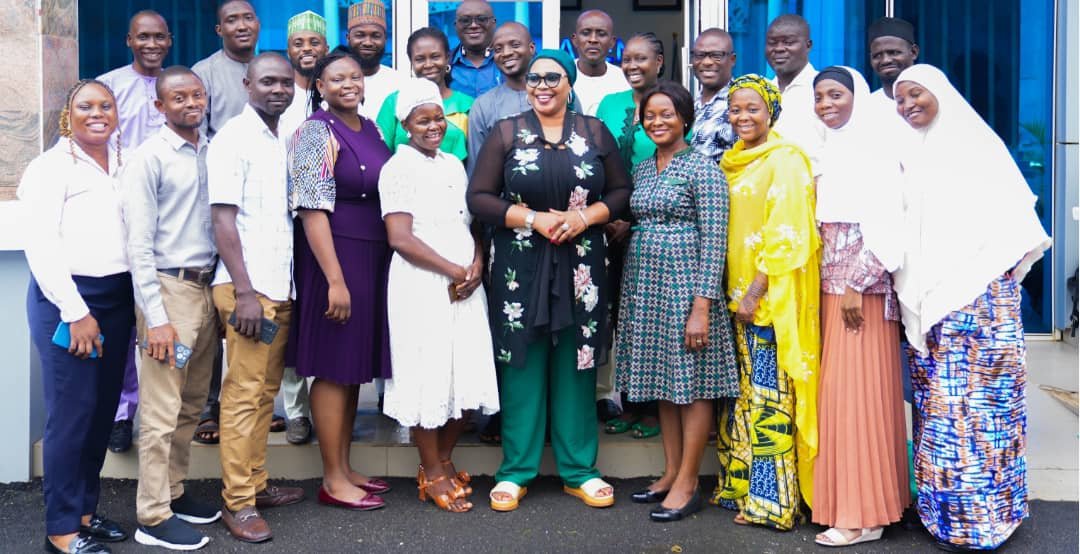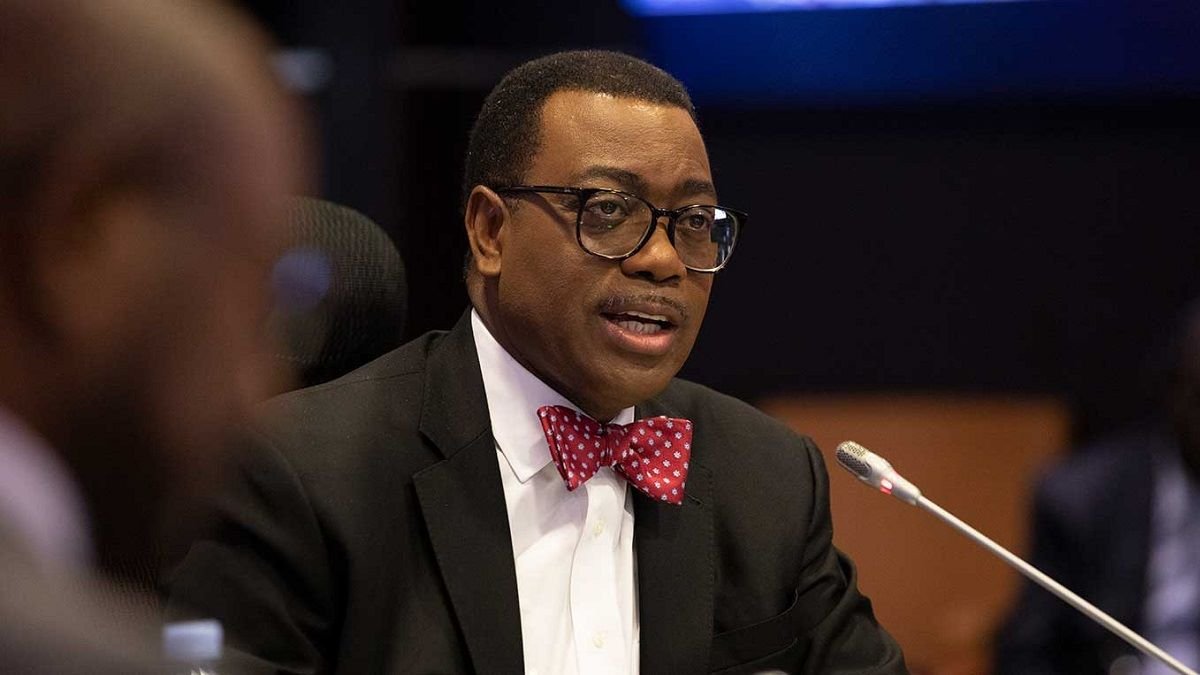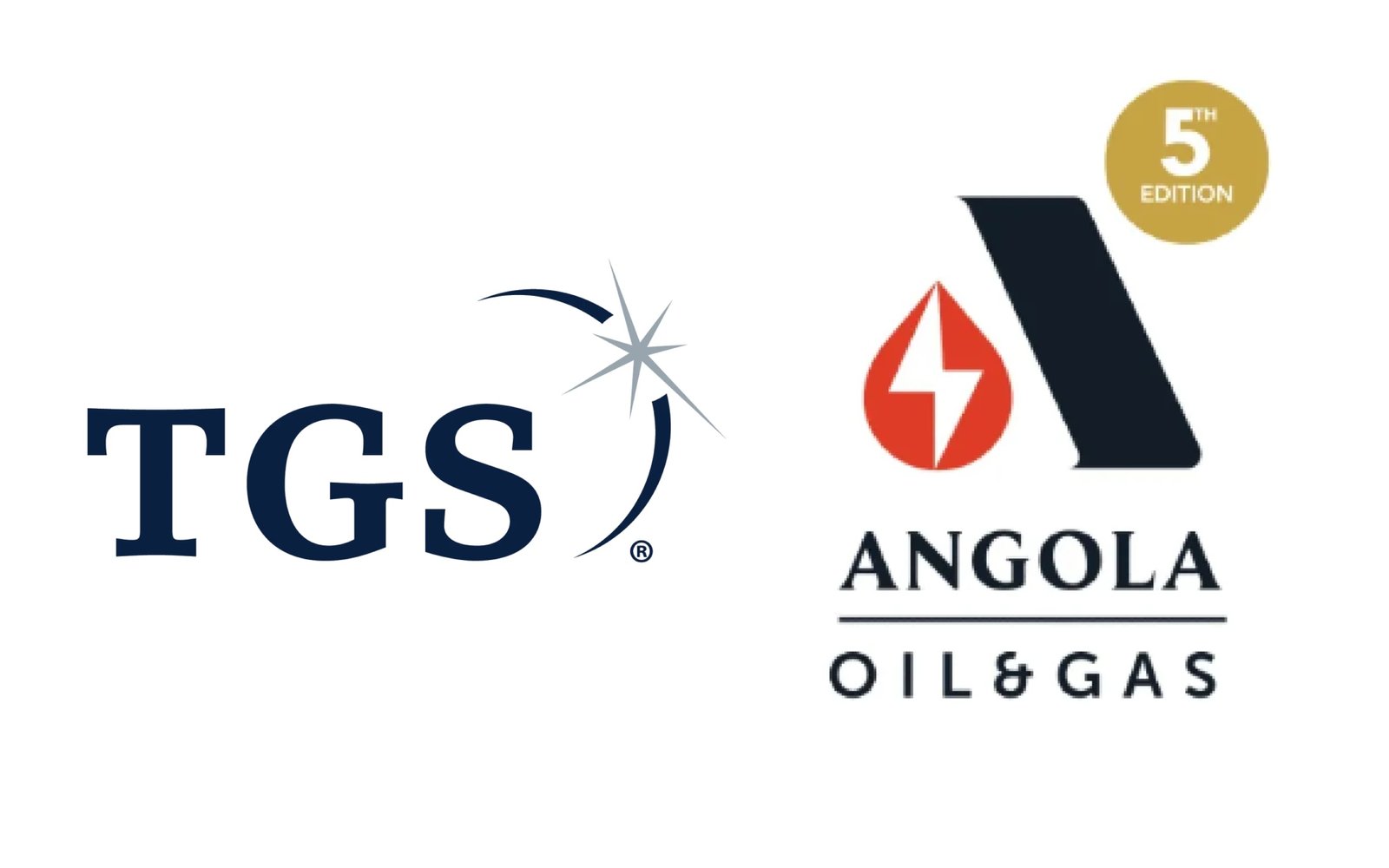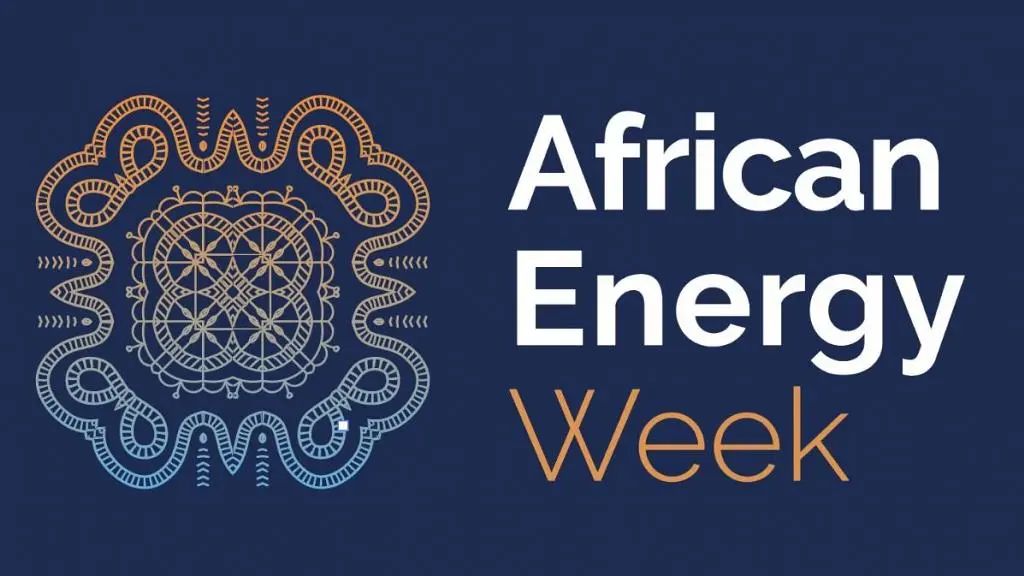By NJ Ayuk
The world is watching Namibia. To be more specific, the energy world is watching. Ever since oil and gas majors Shell (United Kingdom) and TotalEnergies (France) announced massive hydrocarbon discoveries in Namibia’s offshore Orange Basin in 2022, interest in additional exploration in the Southern African country has been intense. And so has curiosity about how quickly Shell, TotalEnergies, and their partners will be able to finalize various field development agreements with Namibia and move on to production. Will their negotiations stall, as we’re seeing all too often in African nations, or will the process move forward smoothly?
One of the reasons the 2022 Orange Basin finds were so exciting — in addition to sheer size, with as much as three billion barrels of oil combined — was the fact that Namibian exploration efforts up to then had been fairly disappointing. Only about 15 wells had been drilled before Shell’s discovery at the Graff-1 well and TotalEnergies’ Venus 1-X find, and none of those earlier efforts yielded commercial quantities of oil or gas. That means the Orange Basin discoveries represent Namibia’s first chance to show oil and gas companies what they can expect after announcing discoveries there.
Now is the time for Namibia’s leadership to show it respects the billions of dollars companies spend on oil and gas production. One of the most practical ways for Namibia to do that is to update its petroleum contracts: They need language that protects oil and gas companies’ investments. Namibia’s contracts should include what’s known as a fiscal stability clause, which would clearly state that if Namibia were to make legislative or regulatory changes — such as new tax requirements — the energy companies signing the contract would be protected from negative economic impacts.
Depending on the language of the clause— also known as an “economic rebalancing” or “equalization clause” — contracting companies might be exempt from new tax codes or compensated to make up for legislation that adds to their expenses such as new labor or environmental laws. What matters is, in the end, the companies’ return on investment would not be impacted by changes that occurred after their deal was finalized.
For Namibia, a newcomer to oil and gas deals, adding a fiscal stability clause to petroleum contracts will be key to retaining the energy industry’s intense interest.
This Clause Carries a Lot of Weight
Guaranteeing oil and gas companies’ investments is hardly a new or radical measure. Fiscal stability clauses are common practice and in place in such countries as Guyana, Mozambique, Mexico, and Angola. While I cannot produce a study that proves that these countries have attracted more investment as a result of their clauses, I do know this: When a developing country fails to offer the clauses, they’re giving oil and gas companies reason to limit investments there.
In a recent paper on financial stability clauses, international consulting company Deloitte commented on the clauses’ value.
“Stabilisation clauses enhance certainty and predictability which are key ingredients for the success of long term investment projects,” the report states. “Petroleum exploitation is capital intensive and recouping the investment takes much longer than most sectors. Any subsequent changes in the laws of the host state may significantly alter the economics of the economics of a project.”
For international oil companies (IOCs), investing in a country without a fiscal stability clause is quite a gamble in an already risky industry.
I realize that Namibia has already taken measures to ensure an enabling environment for upstream activity, including making updates to its tax laws, and I applaud those actions. Namibia’s legal framework and oil and gas code, in general, are considered investor-friendly. But guaranteeing companies’ investments is a critical next step.
Time is Precious
Not only does Namibia need to add a fiscal stability clause to its petroleum agreements, it needs to do it now. Otherwise, there is a possibility that the issue of financial risk will come up during contract negotiations with Shell, TotalEnergies, and their partners. And that, in turn, could lead to costly project delays, a topic the African Energy Chamber addresses extensively in its soon-to-be-released “The State of African Energy 2023 1Q Report.”
I encourage Namibian authorities to learn from the delays that have taken place in Mozambique’s offshore Rovuma Basin. Natural gas discoveries totaling as much as 17 billion barrels of oil equivalent (boe) were announced in the early to mid-2010s, but Mozambique’s negotiations with operators, including Italian energy major Eni and U.S. firm Anadarko, have dragged on for years. As a result, the only project to be completed so far is the Coral Sul floating liquefied natural gas (FLNG) project, fed by Coral Field. The FLNG saw a final investment decision (FID) in mid-2017, followed by construction getting underway in 2018 and the project shipping its first cargo in November 2022. This is a positive step, but imagine the economic and energy security benefits Mozambique’s natural gas could have yielded without such extensive delays.
Then there’s the example of the massive oil discoveries made by Tullow Oil in Uganda and Ghana, announced about three months apart from one another in 2006 and 2007. Tullow Oil began producing oil from its Jubilee Field discovery in Ghana in 2010. Contrast that with Tullow’s Lake Albert Rift Basin discovery in Uganda. After more than a decade of disputes with the government and no progress, Tullow sold all of its Ugandan assets to Total (now TotalEnergies) in 2020.
In 2021, TotalEnergies concluded final agreements to launch Lake Albert resources development, including the Tilenga and Kingfisher upstream oil projects and the construction of the East African Crude Oil Pipeline (EACOP) in Uganda and Tanzania. TotalEnergies continues to move these projects forward in collaboration with China National Offshore Oil Corporation and Uganda National Oil Company. Unfortunately, climate concerns and net-zero emissions aspirations have made driving oil and gas projects forward considerably more challenging than it was in 2006. TotalEnergies is under heavy pressure from environmental activities to abandon its plans for oil production and the pipeline. Its has been 15 years of value and revenue lost for Uganda. Critical issues like this will come up at the African Energy Week in Cape Town, South Africa from October 16th to 20th and investors and governments have to find solutions working hand in hand with each other.
So Much to Gain
Not only will a fiscal stability clause in Namibian petroleum agreements help prevent delays with TotalEnergies (as well as with Shell, which announced another large Orange Basin discovery in 2023), acting decisively to protect companies’ investments will also position Namibia for more exploration.
The Orange Basin is one of several Namibian (and South African) locations of interest to IOCs.
Eco Atlantic’s deep water Walvis Basin blocks (among others) and in particular Osprey prospect drilling target in Block 2012A of the Walvis Basin, for example, was described as one of Africa’s most promising high-impact wells last December.
Meanwhile, Global Petroleum, Namcor, and Aloe Investments are expected to begin exploration in Block 2011A of the Walvis Basin this year. Tower Resources, Maurel and Prom, Exxon Mobil, Oranto Petroleum, Woodside Energy, Chevron, Galp, Recon Africa are currently carrying out a lot of Exploration work in various acreages in the country and moving towards possible drilling soon.
Namibia’s offshore Luderitz Basin and Namib Basin, along with the onshore Owambo and Karoo basins, offer great potential as well. But, again, interest could dry up quickly if companies begin to perceive Namibia as a risky country for investments.
BW Kudu, a wholly owned subsidiary of BW Energy and the National Petroleum Corporation of Namibia (Namcor), is bullish about Kudu Gas today more than before and is working tirelessly to get first gas in 2026. I love this project because domestic gas production could deal with Namibia’s energy poverty and energy security issues. Namibia currently imports about 60% of its domestic electricity needs.
Calls for Change
The African Energy Chamber is not the first to urge Namibia to take steps to guarantee oil and gas companies’ investments. This topic came up in 2020, before the large Orange Basin discoveries.
Uaapi Utjavari, then chairperson of the Namibia Petroleum Operators Association (NAMPOA), wrote to Namibian Minister of Mines and Energy Tom Alweendo to describe the role that fiscal guarantee clauses could play in supporting ongoing investment in Namibian’s fledgling oil and gas sector. NAMPOA recommended a legal/fiscal/commercial framework that balanced the needs of the country and investors.
“There is a fundamental need for a stable and sustainable business environment so the country and the investors are able to plan ahead and rely on terms agreed upon,” Utjavari wrote. “An economic rebalancing provision provides appropriate security around economic terms, which are critical for large-scale multi-billion dollars project investment/bankability, while not infringing the host country’s sovereignty and are a common feature in many petroleum contracts globally.”
The recommendations NAMPOA made in 2020 still make sense for Namibia today.
The African Energy Chamber would like to see Namibia reap all of the benefits its natural resources can offer, from increased energy security to industrialization and economic growth. Namibia can do that — if it shows a watching energy industry that the country is committed to helping companies realize a reasonable return on their investments. Adding a fiscal stability clause to its contracts is the right move. I encourage Namibia to act now.
. NJ Ayuk is Executive Chairman, African Energy Chamber (www.EnergyChamber.org)


